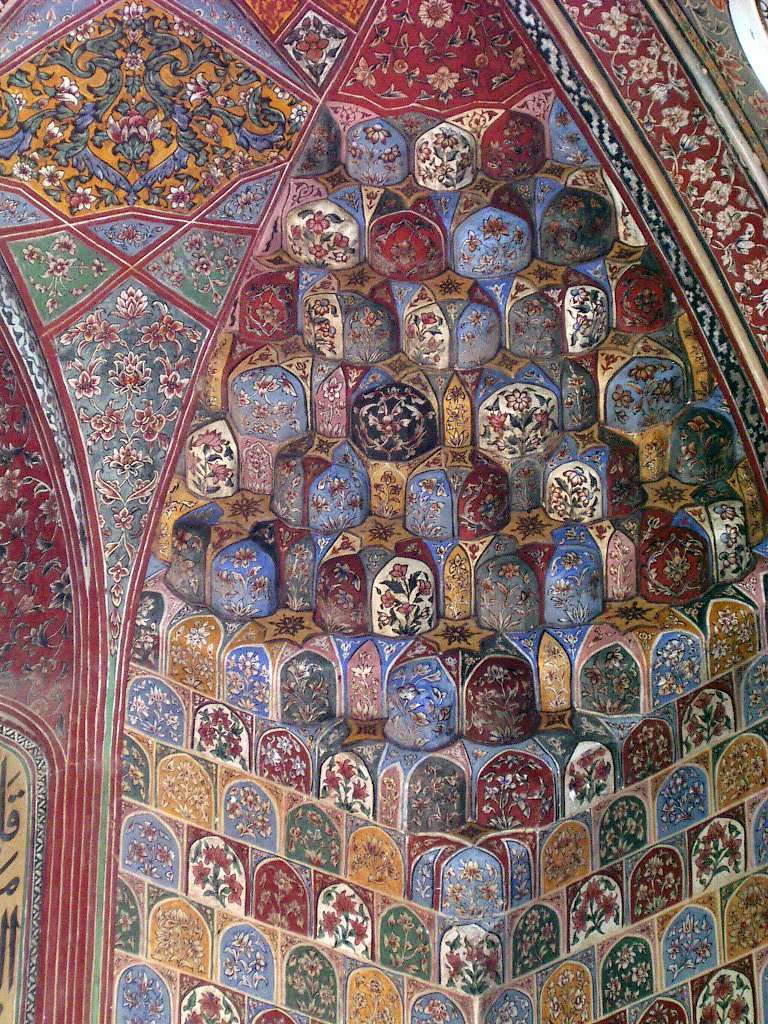FWP:
SETS == A,B; EXCLAMATION
LIFE/DEATH: {7,2}
On this colloquial, emphatically negative use of koʾī , with its implied kyā , see {7,5}. On kyūñ nah ho , see {119,1}.
The first line, with its colloquial use of koʾī , is an exclamation-- emphatic, edgy, impatient. It sounds like something that might be said in reply to a clumsy attempt at consolation. The would-be consoler has perhaps said something like, 'Be patient, time heals all wounds'. The speaker is unable even to listen to such obvious nonsense: he contemptuously dismisses even the idea that the grief of death can ever be lifted from the heart. It's grief over someone's death, anyone's death-- and especially, over everyone's death.
For grammatically speaking, it's grief over the death of the 'lifetime' itself. The grief is over the faut-e furṣat of life-- the 'passing' or loss or death of the 'interval', the 'respite', that life provides. The unusual word faut deserves some 'fresh word' credit; this is its only occurrence in the divan.
Then, as so often, we have to decide for ourselves how the two lines should be connected. Colloquially, the second line looks like an adverbial clause that is part of the first (2a). But grammatically, it can also be read as completely independent (2b).
If the two lines are grammatically one, as in (2a), then we have all the possibilities raised by the commentators. 'Even if' the lifetime is spent in worship, grief at its death remains. Does the 'even if' imply that worship is the best possible use of our time, since we thus seek to procure an afterlife? Or, as Bekhud Mohani says, does it imply that outward worship is an inferior choice when compared with the pursuit of mystical awareness? Or, as Faruqi suggests, does it imply that even though a lifetime of unalloyed worship is deadly dull, we still regret its ending?
If the two lines are taken separately, as in (2b), then a new set of questions arises. Realizing that the grief of the death of life can never be erased, why wouldn't we decide to spend that precious, brief life in worship? Perhaps we so decide because this constant awareness of the brevity of life turns our thoughts to the eternity of the Divine. Or perhaps it's a counsel of despair: life is so brief and pain-filled anyway, why even bother to try to enjoy it or make something of it-- why not just go ahead and use it up in some obvious, mechanically virtuous fashion? Or, even more literally, the second line can actually be taken as a non-rhetorical question: why would the precious life in fact not be spent in worship? Perhaps there could be some reason, after all, why it would not be; we, the readers, will have to do our own reflecting on the whole question.
It's a marvelous verse, isn't it? The tone of the first line
is so sharp, so edgy, so frustrated with complexities and yet so complex--
it can hardly be read with the eyes alone, it demands a tongue and a voice.
We're left to provide that voice ourselves; but that's no problem, we all have that tone in our repertoire.

Nazm:
That is, what can man obtain that is beyond the fruit of worship? So if the period of life is spent only in worship, then why will there be sadness over it? This 'interval/respite of life' is an extraordinary occasion, one that won't come again. (128)
== Nazm page 128